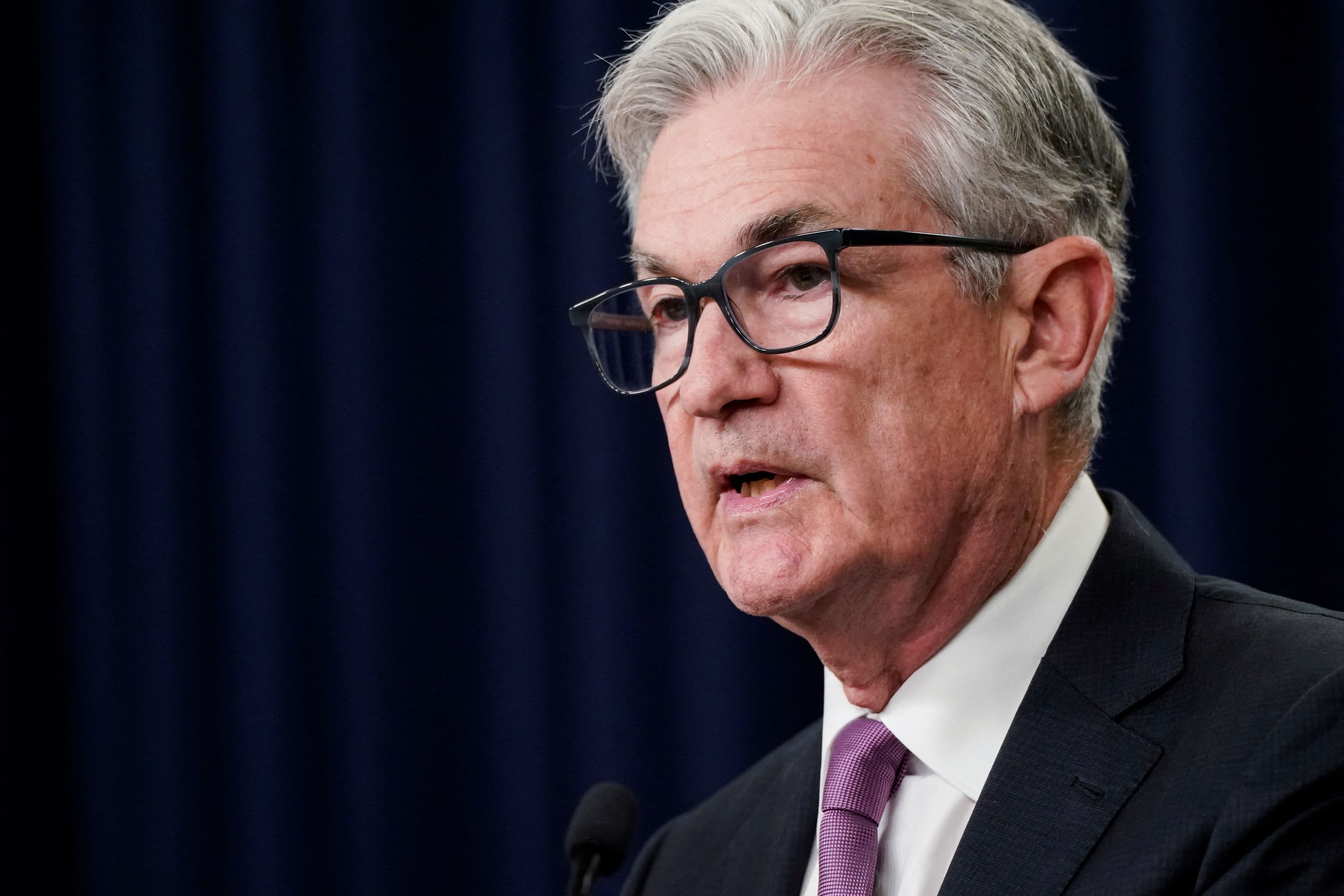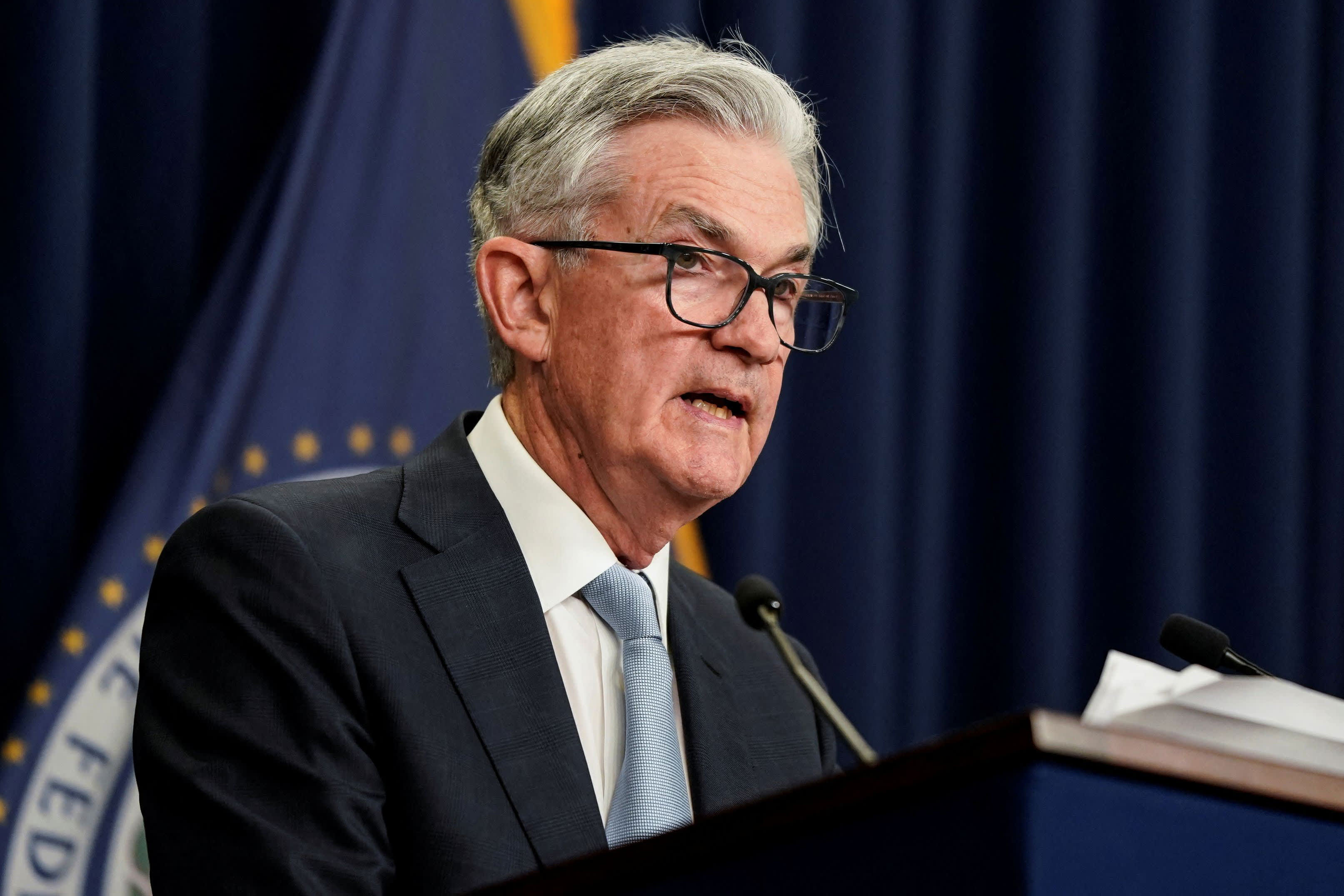LONDON — The Bank of England is faced with a crucial choice as it navigates a plunging currency and the effects of a new government energy cost package that has changed the inflation outlook.
The Monetary Policy Committee will announce its latest decision on Thursday, with analysts divided over whether to expect a hike to interest rates of 50 or 75 basis points.
related investing news
U.K. headline inflation dipped to an annual 9.9% in August, according to initial estimates from the Office for National Statistics, down from July’s 10.1%, led by a fall in motor fuels.
But economists were skeptical as to whether this signaled that inflation has peaked, and are awaiting details next week on a new government fiscal package, which will include a cap on household energy bills.
At its previous meeting, the Bank of England projected that inflation would hit 13.3% by the end of this year, with the likes of Citi and Goldman Sachs forecasting eye-wateringly high consumer price index prints early next year.
Much has changed since then. The Bank’s inflation projections will likely be revised down in light of the announcement of measures from new Prime Minister Liz Truss’s government.
Yet the additional government support may potentially result in higher medium-term inflation, economists have warned, while the MPC is also navigating sluggish growth and an extremely tight labor market.
Other central banks around the world have acted aggressively to bring down inflation. On Tuesday, Sweden’s Riksbank hiked interest rates by 100 basis points, warning that inflation was “undermining households’ purchasing power.”
The U.S. Federal Reserve is expected on Wednesday to lift its benchmark borrowing rate by 75 basis points, the third consecutive hike of that magnitude.
Markets expect the Fed to maintain its hawkish trajectory until inflation is under control, which will supply further momentum for the U.S. dollar as investors seek a safe haven in the rising rate environment.
Meanwhile the European Central Bank earlier this month announced a 75 basis point increase to its benchmark deposit rate.
The British pound hit a fresh 37-year low against the dollar last week amid fears for the health of the economy, as the country’s cost-of-living crisis begins to weigh on activity.
‘Let’s shield our eyes’ for the pound
The Bank hiked by 50 basis points last month, its largest single increase since 1995, but some analysts believe it will need to up the ante and keep pace with global peers to prevent a capitulation of the currency.
“If the Bank of England fails to hike 75 basis points, let’s shield our eyes for what is going to happen to the pound here,” John Hardy, head of foreign exchange strategy at Saxo Bank, told CNBC on Tuesday.
“The Bank of England has to go 75, it has to match its global peers here when we have seen cable [pound-dollar] trading at its lowest level since 1985. It would really be quite a tone deaf performance from the Bank of England if they don’t go for 75 basis points at this week’s meeting.”
His thoughts were echoed in a note on Friday by Deutsche Bank Global Co-Head of FX Research, George Saravelos, who said investors should avoid currencies with “very negative real yields” in a world of “real and nominal asset value destruction.”
“It should be no surprise then that GBP and JPY have made new multi-decade lows this week. By extension, it must be that next week’s Bank of Japan and Bank of England meetings are critical for the currencies: a hawkish turn is needed to help protect both,” Saravelos said.
Deutsche Bank has previously warned that sterling in particular is exposed to a potential balance of payments crisis, and Saravelos reiterated that the pound is “vulnerable to extreme dislocation if the Bank of England does not step up its response.”
Energy price freeze a ‘game changer’
The hawks on the MPC will no doubt be concerned about the recent sterling weakness, but some analysts suggested that in light of the government’s energy package and increasingly bleak economic data, the Bank is more likely to opt for a gradual tightening message.
Barclays dubbed the price freeze a “game changer,” and now estimates that inflation may already have peaked and that the direct impact of the energy price cap will reduce annual consumer price increases from an average of 9.5% in 2023 to just 5%. Barclays analysts deemed that the squeeze to households would now be “substantial but not insurmountable.”
The British lender does not expect the MPC to acknowledge the full effects of the new measures this week, but sees Thursday as a “transition meeting” before the Bank updates its forecasts and resets its narrative.
“Consistent with weaker data, we expect dissenting dovish voices to become louder following the announcement of the energy price freeze. This would call for more gradual tightening if at all,” Barclays Chief U.K. Economist Fabrice Montagne said in a note Friday.
Barclays expects a 50 basis point hike on Thursday with a further 25 basis points in November and a shift in tone, once the full details of the government’s new policy measures have been laid out and macroeconomic forecasts updated accordingly.
‘Close meeting to call’
Thursday’s meeting is likely to give an indication of how worried the MPC is about the fall in sterling and domestic markets, and how they expect the government’s measures to feed through to monetary policy.
ING Developed Markets Economist James Smith said this would be a “close meeting to call,” but noted that the Bank of England has form in not following the Fed’s lead, having hiked by 25 basis points in July after the Fed’s 75 point upshift.
Although labor shortages may stoke fears of more persistent inflation in the form of higher wage growth, and subsequently more central bank tightening at a later date, Smith contended that this doesn’t have to manifest itself as a “radically higher policy rate.”
“The swaps market is pricing a terminal rate in the region of 4.5% next year. Hiking by 75bp risks adding even more fuel to the fire, something we suspect the committee will be wary of doing, even if there are advantages in front-loading hikes,” he added.
ING narrowly favors a 50 basis point hike on Thursday, taking the Bank Rate to 2.25%, but Smith noted that at least a couple of MPC members will likely vote for 75 basis points.
“It’s even possible we get a rare three-way vote – the first since 2008 – if dovish committee member Silvana Tenreyro votes for a 25bp hike as she did in August,” he said.
“If our call is correct, then we expect another 50bp move in November and at least another 25bp in December.”







